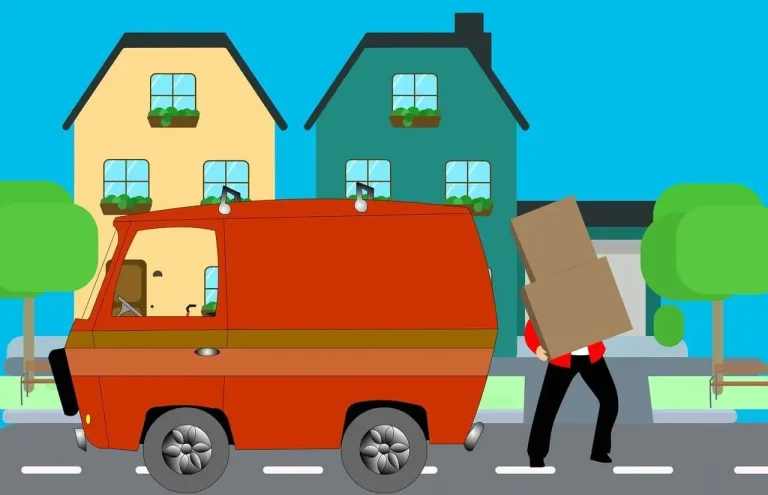What Workers’ Comp Lawyers Won’t Tell You? But We’ll

A workers’ compensation lawyer, also known as a workers’ comp attorney, specializes in helping employees navigate the complexities of workers’ compensation claims. Workers’ compensation is a system in the US that provides benefits to employees who are injured or become ill while performing their job duties.
Most of the time, a workers’ compensation attorney doesn’t tell all the things that their client should know. But, don’t need to worry, because you’ve landed at the perfect place where we’ll let you know what workers’ comp lawyers won’t tell you.
While facing work-related injury, it’s a perfect thought to get in touch with a worker’s comp lawyer who’ll help you a lot in filing a claim to get your rights. Some important things like which type of workers they should be and others that you must know about them.
What Workers’ Comp Lawyers Won’t Tell You? Know Everything
While many workers’ compensation lawyers strive to provide clear and comprehensive information to their clients, there may be several reasons why certain aspects aren’t explicitly emphasized or discussed:
Reasons for Not Telling:
- Assumption of Knowledge
- Case-by-Case Variability
- Client Overwhelm
- Risk of Discouragement
- Focus on Legal Aspects
5 Important Things What Workers’ Comp Lawyers Won’t Tell You?
1. Potential Grounds for a Personal Injury Lawsuit Exist
While workers’ compensation generally covers workplace injuries, certain incidents may lead to additional legal actions under tort law, known as third-party lawsuits. These actions can result in extra compensation if they overcome a defendant’s plea in bar.
For instance, if another driver’s negligence causes a work-related motor vehicle crash, you can file a lawsuit for damages. Similarly, if a construction site accident results in a head injury or amputation due to defective machinery, you may seek compensation from the product manufacturer.
In cases of workplace violence, such as assault and battery against a teacher, pursuing a civil action against the student or parent is another avenue for seeking justice.
2. Eligibility for Social Security Disability Insurance (SSDI) Benefits May Apply to You
Serious work injuries, like those leading to Social Security disability eligibility, often involve conditions such as a back injury requiring spinal fusion or a torn rotator cuff causing lasting impairment or nerve damage, especially if you’re 50 or older.
Importantly, you can receive both SSDI and weekly workers’ comp payments simultaneously. However, your workers’ comp lawyer might not suggest pursuing SSDI benefits due to a lack of knowledge about the program or concerns about potential Medicare involvement in settling your case.
3. Your Employer’s Post-Injury Treatment May Give Rise to Employment Law Claims
Despite the existence of workers’ compensation programs designed to safeguard injured employees and limit employer liability, some employers may take work-related accidents personally and retaliate against injured workers.
If your employer mistreats you following a workplace injury, you may have legal recourse under various labor and employment laws. This mistreatment could potentially violate laws such as the Family and Medical Leave Act (FMLA), the Age Discrimination in Employment Act (ADEA), the Americans with Disabilities Act (ADA), or other state-specific employment laws.
Before making any decisions, especially resigning as part of a workers’ comp settlement, it’s essential to explore these potential legal claims to ensure your rights are protected.
4. Negotiations for Settlement Might Not Commence Until Maximum Medical Improvement (MMI) is Reached
No injured worker desires an endlessly lingering workers’ comp claim. While a lifetime medical award is beneficial, it’s not the ultimate goal.
Ideally, the focus is on healing, obtaining fair compensation for wage loss and permanent partial disability, and eventually cashing out the lifetime medical award. This path grants you more autonomy over your life and healthcare decisions.
Regrettably, settling your claim for a lump sum may require patience. Some insurers and third-party administrators might only engage in settlement negotiations after reaching maximum medical improvement (MMI).
The duration varies depending on your injuries and could extend for months or even years. Unfortunately, neither you nor your lawyer can expedite this process.
Despite potential delays, your attorney should assess your settlement claim as soon as there’s sufficient information for informed recommendations.
5. Vocational Rehabilitation: A Potential Hindrance Instead of Help
Wanting to get back to work promptly after an injury is natural. Whether it’s a light-duty role, employment can offer mental health benefits and serve as motivation during the challenging recovery process.
In theory, vocational rehabilitation sounds beneficial, aiming to reintegrate injured workers into employment and ease the burden on the employer to pay future wage loss benefits.
However, the reality is less optimistic. Vocational rehabilitation might adversely affect your claim, jeopardizing the benefits provided in your Workers Compensation Award Letter.
Based on my experience, there’s a higher chance that the vocational rehabilitation counselor will find reasons to claim your lack of full cooperation than successfully securing a job within your medical work restrictions.
If the Commission sides with the employer’s vocational counselor, your workers’ comp benefits could cease.
How to Find the Right Workers’ Comp Lawyers?
When searching for the right workers’ compensation lawyer, prioritize specialization and experience in handling cases similar to yours. Local knowledge of laws, positive referrals, and online reviews can guide your decision. Schedule an initial consultation to assess communication and comfort levels, ensuring transparency on fees.
Consider courtroom experience, trust your instincts, and choose a lawyer who not only possesses legal expertise but also understands and addresses your unique needs throughout the process.
FAQs
Conclusion
In conclusion, we assure you that after reading our guide on what workers’ comp lawyers won’t tell you, you’ll be careful while looking for compensation lawyers. We’ve also listed 5 main points that most workers’ comp lawyers don’t tell their clients. In brief, should you have any inquiries, feel free to ask us using the comment box.
Click here to learn what all good orienteering compasses have.






